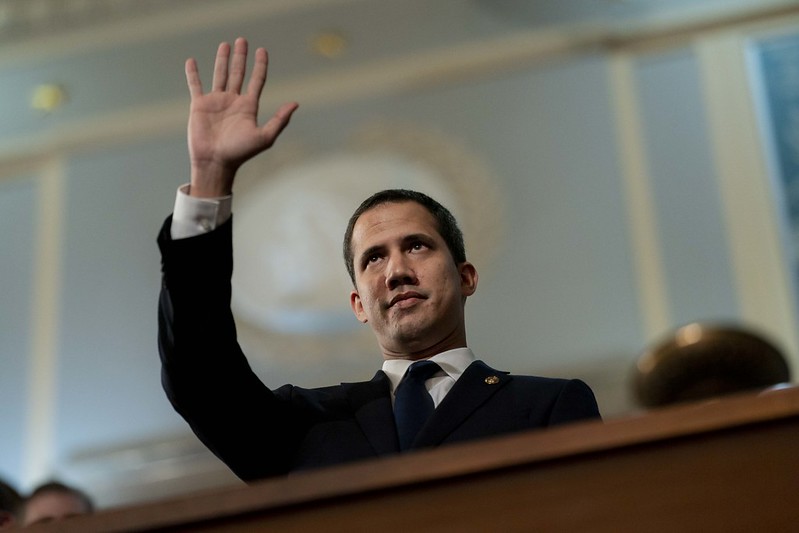By Andrei Serbin Pont*

Venezuelan opposition leader Juan Guaidó’s recent call on the United Nations to invoke its “responsibility to protect” (R2P) norm to remove Nicolás Maduro and protect the Venezuelan people was a bold, even sophisticated, diplomatic gambit but has little chance of bearing fruit. Guaidó – recognized as Venezuela’s President by some 50 countries – did not speak officially to the UN but used the virtual format, in place because of the pandemic, to create the appearance among his constituents and international allies that he was addressing the UNGA.
Guaidó’s call for R2P was different from his previous appeals for restoring democratic institutions and advancing peaceful means to displace Maduro. He argued that the international community had a responsibility to invoke the R2P norm, endorsed by all UN member states in 2005, to safeguard the millions of Venezuelans living under Maduro’s rule. He said the international community must contemplate it as a strategy for what happens once all diplomatic measures are exhausted, a reference to preparations for taking “collective action, in a timely and decisive manner,” as outlined in paragraph 139 of the UN’s 2005 World Summit Outcome Document. Appealing to the so-called “grey states,” those skeptical but not opposed to the R2P doctrine, Guaidó argued that the diplomatic, humanitarian, and other peaceful means of effecting regime change in Venezuela taken so far have had no effect.
- Guaidó further argued that “crimes against humanity,” as documented last month in a 400-page report by an independent fact-finding mission appointed by the UN Human Rights Council, meet the criteria for R2P action. The mission found “patterns of violations … that were highly coordinated” by Venezuelan authorities, including targeted repression, political assassinations, extrajudicial killings, human rights violations in the context of social protests, arbitrary detentions, lack of due process, and torture and inhumane treatment – all actions that are mainstream subjects of debate for the human rights and R2P community at the UN.
- Even more bold was Guaidó’s reference to national sovereignty as a normative cornerstone of R2P, which embraces the idea of “sovereignty as responsibility” – rather than unrestricted respect for national sovereignty and the uncompromising defense of non-intervention.
Guaidó’s invocation of R2P will not prevail however articulate his arguments. From a purist perspective, R2P can only be invoked if it follows the UN Charter, which would require the international community, specifically the UN Security Council, to approve the use of force – a very remote possibility. Some experts may argue that R2P could be utilized outside the UN framework, especially if debate is systematically blocked by Russia and China, but the reality is that only one country has the capacity to intervene militarily in Venezuela, and that country – despite occasionally bellicose rhetoric – seems unlikely to do so. Even if the United States were to try it, the international community, including those which followed Washington’s lead in recognizing Guaidó 20 months ago, are highly unlikely to embrace the logic for what would probably be an invasion and prolonged occupation.
- Guaidó’s effort, however, was not a total bust. He may have advanced a secondary purpose by drawing attention away from questions of his own legitimacy and placing the onus on Maduro to demonstrate his own legitimacy and responsibility for protecting the Venezuelan people.
October 21, 2020
* Andrei Serbin Pont is an international analyst and director of the CRIES regional thinktank.

